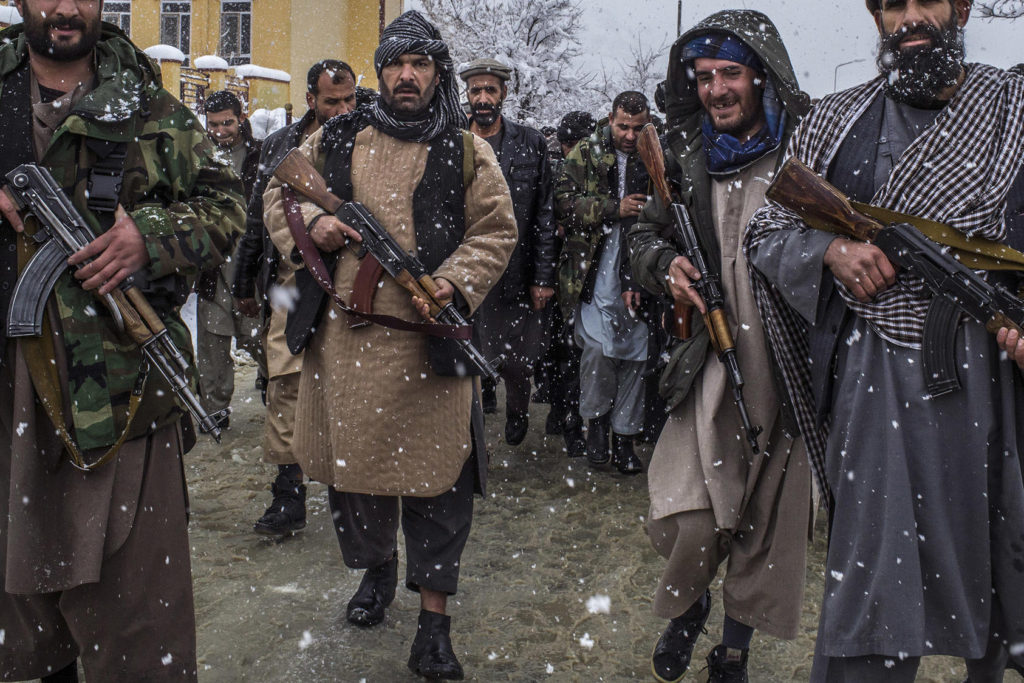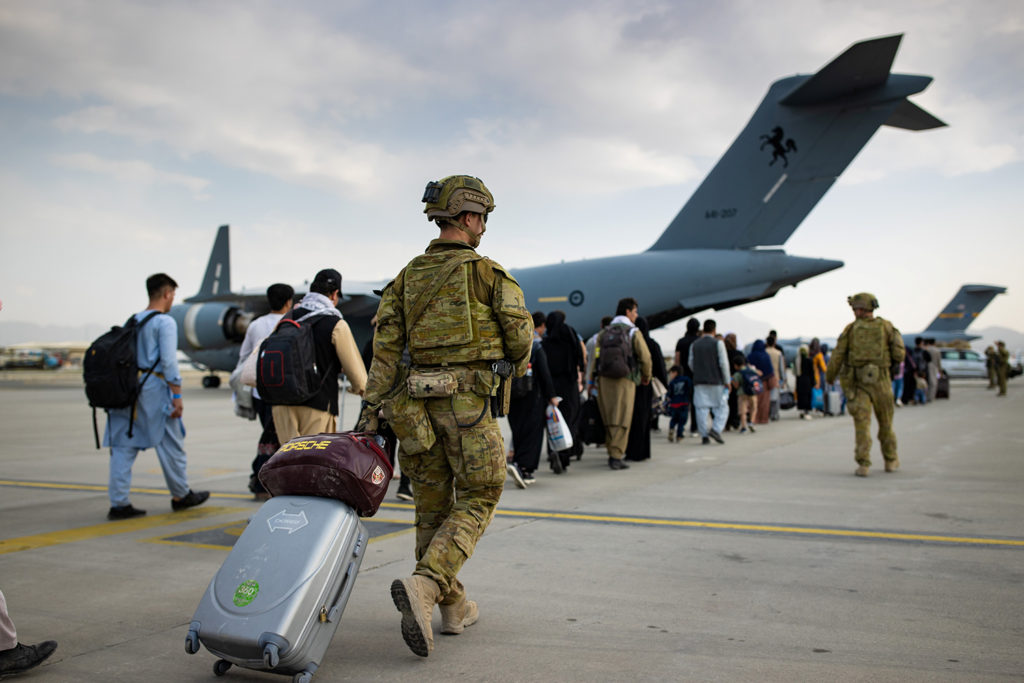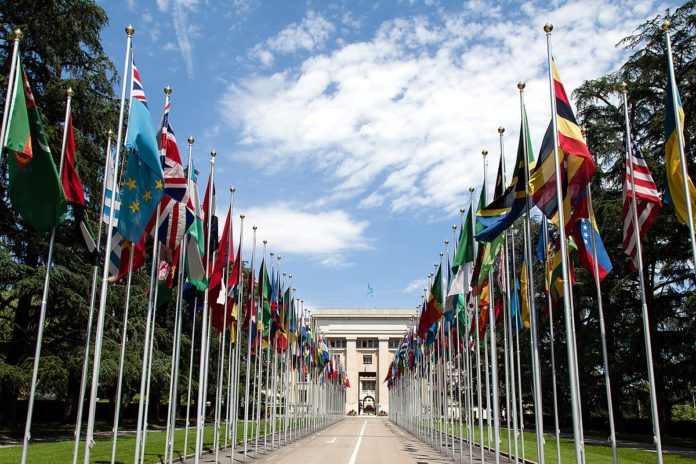Context
As great power competition has gradually picked pace, it was assumed that the Campaign Against Extremism has subsided. In fact, US has admitted that this campaign has distracted it from preparing and dealing with global adversaries such as China and Russia.
However, recent events have demonstrated that the character of the campaign has changed – but the threat from the radicals has not evaporated. In fact, history has shown that as global power tussles heat up – the extremist become proxies and operate with new purpose and vigor. And that gets into what constitutes terrorism. Defining terrorism is not an easy task, and the recent formulation came under the shadow of the tragic events of 9/11.
The UN General Assembly Resolution 49/60 describes it as:
“Criminal acts, including against civilians, committed with the intent to cause death or serious bodily injury, or taking of hostages, with the purpose to provoke a state of terror in the general public or in a group of persons or particular persons, intimidate a population or compel a government or an international organization to do or to abstain from doing any act.”
The FBI lists International Terrorism as:
“Violent, criminal acts committed by individuals and/or groups who are inspired by, or associated with, designated foreign terrorist organizations or nations (state-sponsored).”
While FBI lists Domestic Terrorism as:
“Violent, criminal acts committed by individuals and/or groups to further ideological goals stemming from domestic influences, such as those of a political, religious, social, racial, or environmental nature.”
Clearly there is realization of the two dimensions representing the menace, an internal and an external one. On the other hand, there are Non-State and State Sponsors of Terror – that are dealt with differently. Broadly, and without getting bogged down in technicalities, Terrorism can be defined as using violence to achieve one’s objectives believing that negotiated settlements or political recourses are no longer possible – and is premised on a serious real – or perceived grievance.
In contemporary terms, the grievances of Muslim extremists are of religious and political nature but the underpinnings are composed of social and racial issues as well. There is also a chain reaction dynamic to this phenomenon – in terms of what was deemed as the original sin. The subsequent generations often adopt the grievance without experiencing its dynamics themselves.
And in this sense the Past, and how much further back to go in time to understand the misgiving, is an important aspect. Part of the equation involves self-absolving from having played any role in the predicament. Eventually, this becomes part of indoctrination and assists in framing a particular world view in which others are blamed – and external dimension carries all the weight.
The legacy of colonialism, the unresolved issues of Palestine and Kashmir, illegitimate rulers and corruption, have all contributed towards the rise of non-state actors with global ambitions like Al Qaeda (AQ) and Daesh – and their affiliates. And thus, developing an effective counter-narrative has been an on-going challenge, especially when local leaders are perceived as corrupt and lacking public support.

US Withdrawal from Afghanistan
The US withdrawal from Afghanistan that completed in August 2021 was a culmination of extensive talks with the Afghan Taliban. These negotiations highlighted that talks with extremists with local agenda can be conducted. However, it clearly delineated that kinetic approaches would continue against extremists with global agenda, such as AQ and Daesh, as demonstrated by the elimination of Ayman Al Zawahiri in a Kabul drone strike on July 31.
Officials claim the presence of the AQ mastermind in Kabul was a clear violation of the Doha Agreement reached in February 2020. One of the key terms of the Agreement stipulated that Taliban will not allow Al Qaeda, ISIS-K and other International terrorist groups and individuals to use Afghan territory to launch attacks against US and its allies.
Pakistan has also been impressing on Afghan Taliban to increase pressure on Tehreek-e-Taliban Pakistan (TTP), which has been carrying out terrorist activities againstPakistan and have refuge in Afghanistan. Since the Afghan Taliban came to the helm, TTP activities have intensified, and Afghan Taliban have not carried out any strong action to restrict them. This is due to the complex history of how the non-state actor phenomena has evolved in the region.
Both the Afghan Taliban and TTP are part of the regional extremist landscape which has come to be known and as AQ and Associates or Affiliates. Afghan Taliban provided refuge to AQ that was responsible for planning and conducting the 9/11 attacks. Subsequently, Afghan Taliban were fighting NATO forces in Afghanistan, and TTP was targeting military and civilian targets in Pakistan while also helping out across the border. As a result of the Doha Agreement, Afghan Taliban were expected to break ties with AQ and restrict the activities of other affiliates, like TTP – and it seems to have done neither. The Afghan Taliban claim that they are fully in control over the activities of their arc nemesis, Daesh. It also fears pressure on TTP could possibly make them switch and join ISIS-K, the Deash branch in Afghanistan.
Two recent assessments have presented the emerging picture. In a briefing to the Security Council, UN counter terrorism chief Vladimir Voronkov stated:
“Da’esh and its affiliates continue to exploit conflict dynamics, governance fragilities and inequality to incite, plan and organize terrorist attacks.” Moreover, they are also exploiting the pandemic, digital space, and increasing use of drones.
On the other hand, a US intelligence assessment prepared after Ayman al-Zawahiri was eliminated describes a less serious situation as far as AQ is concerned. It states that the group has not reconstituted in Afghanistan, but it would rely on its affiliates outside the region to carry out attacks. It is also notes that AQ members have more freedom to operate since the Afghan Taliban came into power. One of its regional affiliates is also Al Qaeda in the Indian Subcontinent (AQIS) with activities focused on India, Bangladesh and Pakistan.

Post Withdrawal Campaign against Extremism
The evolving extremism landscape in Afghanistan provide hints as it relates to the future of War Against Extremism. As Afghan Taliban settle in – it’s not clear if they are willing to break ties with global extremists such as AQ, or act against local affiliate like TTP. On the other hand, it’s ability to counter Daesh is also questionable. So far, it’s not accepted any assistance in this regard fearing being labelled a Western collaborator. Attacks from the Baloch Liberation Front (BLF) in Pakistan have also risen.
This unfolding scenario is directly impacting the political and security situation of Pakistan. Its ability to convince Afghan Taliban to act against TTP has only produced facilitation of negotiations. This has greatly frustrated the nation and perhaps has pressured it towards more counter-terrorism cooperation with the US – for which there is little public appetite. And this puts the economically fragile nation in a quandary. Faced with growing US-India strategic partnership, counter-terrorism cooperation with the US could provide the security and economic lifeline it desperately needs.
Speaking at the United States Institute of Peace (USIP) on February 15, the Special Representative for Afghanistan and Deputy Assistant Secretary for Bureau of South and Central Asia Affairs, Thomas West explained the emerging US policy. Replying to a question on what leverage does the US have now if Afghan Taliban does not abide by the agreement and demands of the international community, Mr. West stated that when it comes to security cooperation, the Afghan Taliban has shown the least interest in future cooperation with the US in fulfilling the terms of their side of the Doha Accord. At the same time, West noted that the US is not supporting any opposition to Afghan Taliban and is advising other nations to refrain from that, but some will do that sooner or later if the Taliban does not show urgency. Answering a question, he commented that many players are realizing that not having US engagement in Afghanistan is not in their interest. As the great power rivalry escalates over the matters of Ukraine and Taiwan, it is doubtful if US, China, and Russia would continue to cooperate on affairs related to non-state and state actors of terrorism. It likely will not be the card blanche it used to be. The collaboration on the on-going Iran nuclear talks, and its wider regional behavior, is a case in point. Moreover, the term of ‘Good versus Bad’ extremists could come in to play again – including what constitutes terrorism, especially when they are employed in the context of global and regional balance of power tussles.




